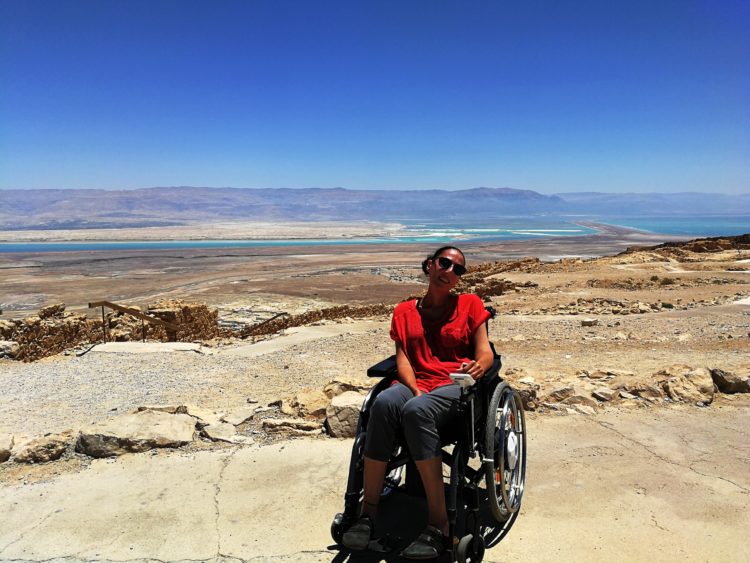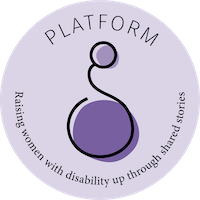It is heartening to know that much is being done to create a world where women of any age, size, race and ability can be fit, strong and love their bodies. How then do you deal with discovering that your body that doesn’t want to play the game, and step up to the challenges of a diagnosis with no treatments and no cure?
Would you discover that we still live in a world that is contradictory in its messages to women about our bodies, and how would you manage the journey? Take a moment to find out, as Tali Maron shares her journey with Facioscapulohumeral muscular dystrophy (FSHD) with us in the latest of our Inspired stories.
Tell us about yourself
My name is Tali, and I am 40 years old. I was born in Riga, Latvia. When I was 12 my family immigrated to Israel, where I live today. I am an “unemployed-due-to-a-disability software engineer”, still figuring out what my next occupation will be. Recently I started writing a blog about my journey with FSHD and wheelchair travel. Check it out at www.rollwithasmile.com
I have FSHD. It’s is a progressive muscle wasting disease that affects all genders of all ages. In most cases, facial muscles, shoulders and upper arms are affected. In others, abdominal, hip and leg muscles also become weaker and in 20 percent of the cases, like mine, people need a wheelchair. Most people affected have a normal life span, but their quality of life is severely affected. Currently, there are no treatments and no cure.
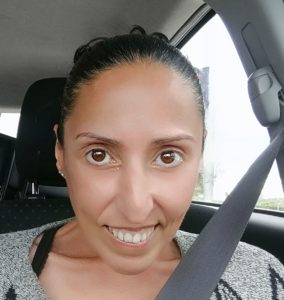
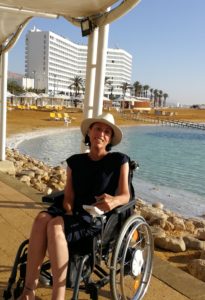
What has been your journey of disability?
It has been a journey of almost 15 years. The first red alarm was at 27. My blood work showed some abnormalities, but the doctors just didn’t have the knowledge or the experience to point me in the right direction. At 28, in a fitness class, I experienced my first muscle weakness in my shoulders. Again, the doctors were clueless and I was growing more and more frustrated. Somehow I got lucky to have found an amazing young doctor. She didn’t know what I had, but she was determined to find out. With her guidance and dozens of tests and specialist visits, at 31, I was finally diagnosed with FSHD.
The physical: Ever since that fitness class, I’ve been gradually losing muscle mass and strength and constantly adapting and learning to live and function in my new body. Today I have a 24/7 live-in caregiver, who helps me with every aspect of my life: house maintenance, cooking, personal care, etc. Physically, I am completely helpless without her. Maintaining a full-time job/career is also impossible due to physical limitations.
The mental: This is the tricky part. With FSHD, the progression usually comes in bursts with sudden deterioration following periods with no change, so the cycle of loss-anger-grief-acceptance and adaptation is never-ending and takes a heavy emotional toll. There is also the body image aspect. My body has changed dramatically. Learning to accept myself again, in my new body, has been a struggle but I am getting there. Unfortunately, society often makes it even harder with constant judgment, stares and comments.
The last couple of years were the hardest but also the most liberating. They started with what I call a mourning period. I mourned the loss of my independence, the end of my career, the loss of my looks and the possibility of ever having children. I think the hardest part for me was admitting my helplessness, admitting that I needed help and actually asking for it. This period also helped me gain a different perspective on life. It made me concentrate on things and people that truly make me happy, stop worrying about what everyone thinks of me and just enjoy life. The thing I feared most, relying on mobility aids or someone’s help, was the thing that gave me back my freedom. With the help of my caregiver, I can travel again, which is my favorite thing in the world!
Are there things about you that people misunderstand because of your disability?
People often assume what I can or cannot do, that I need help, that my life is difficult. They often feel the need to cheer me up or show sympathy. Some talk directly to whoever is with me, completely ignoring my presence. The fact that I am in a wheelchair doesn’t make me less of a human. Please don’t assume anything, treat me like you want to be treated and if I need help, I will let you know.
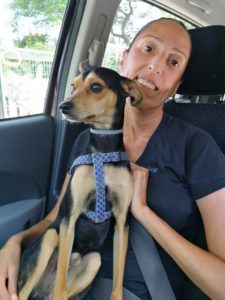
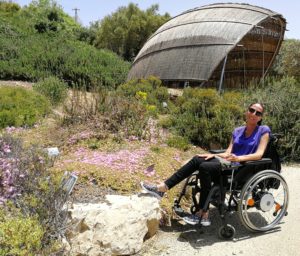
Who inspires you? Where do you get inspiration from?
My nephews and nieces. Travelling, exploring new countries and cultures, nature, food and music.
Which three words would you use to describe yourself?
Positive, Strong, Curious.
What is one thing, experience or person you have had that completely changed your life?
FSHD. Aside from totally changing my appearance and lifestyle, it has completely changed my outlook on life. It has made me less judgmental and more forgiving (especially towards myself), more appreciative of my family, friends, and just the simple things in life. It has given me the courage to stand for myself and my beliefs instead of constantly trying to please people.
Who or what has been the most significant influences on who you are today?
Definitely my mother. From being a Holocaust survivor, having to run from the Nazis and almost dying of hunger as a child, losing her husband (my father) when I was ten, immigrating to a different country as a single mother and starting over, taking care of me when I went through my darkest time just recently – she has always remained my rock and has given me unconditional love and support. I am strong because and thanks to her.
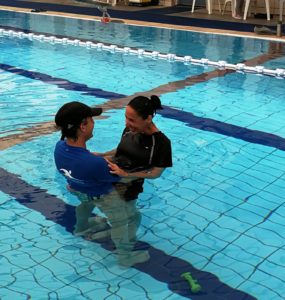
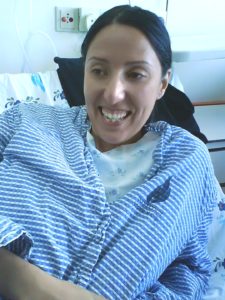
What’s one thing about you that surprises people?
My openness about my FSHD journey, the good and the bad. My ability to stay positive and laugh at myself and my disability.
For what are you most grateful today?
My support system. Family, friends, my physical and hydro therapists and my caregiver. I would not be where I am without them, their help, support and understanding.
Knowing what you know now, what advice would you give your 18-year-old self?
Two things: Don’t seek other’s approval or validation, be true to yourself. Don’t wait for what you think is the right time, make the time right.
Do you have a funny story involving or relating to having your disability you can share?
There are many, here is a less embarrassing one:
When I was still able to walk a little, a couple of my closest friends and I went to Cyprus for a long weekend. When we arrived at the hotel after a night flight, our rooms weren’t ready yet and we decided to relax by the pool. At the time I still refused to ask my friends for help (how stupid), so changing by myself into my swimming suit in a public restroom was too difficult and sitting on the pool lounger or getting up from it was physically impossible. I ended up falling asleep at the poolside, on a most uncomfortable chair, fully clothed.
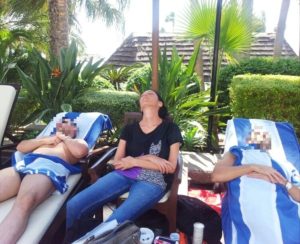
Is there something that you would like people to know about you or about people with disability that they might not know?
It all starts with education and awareness, only a few years ago I also had no idea!
I can see how my situation affected my family and friends. They’ve started noticing things like low curbs, wheelchair accessible restrooms, etc. My nephews and nieces have never been around people with disabilities. Through my openness and patience in explaining it to them, through letting them help when they can, they view it as a completely normal thing and through them, also their friends.
Educate yourselves and your children about disability, let them interact with children with different disabilities, it will help them grow into more humble and accepting adults. Teach them about inclusion and diversity, after all, that’s the world you will want them to live in.

